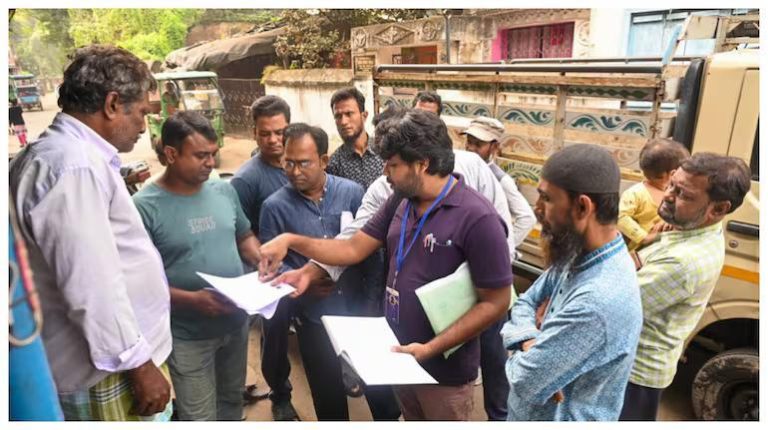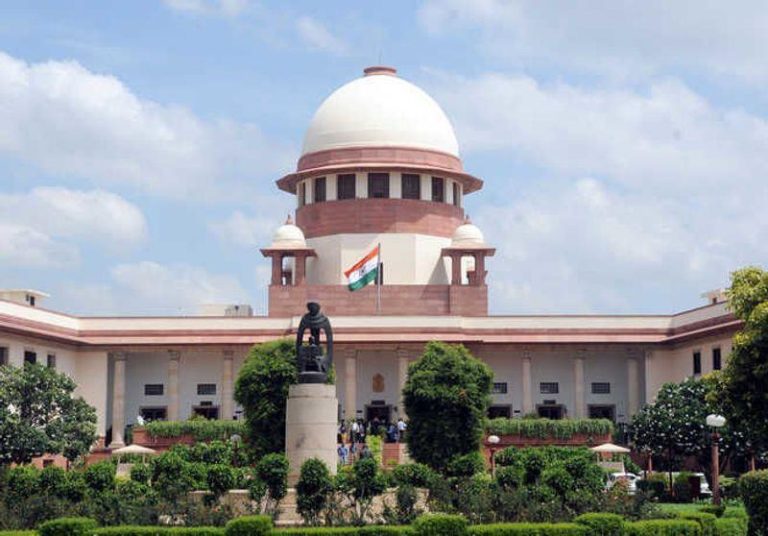
Aadhaar, Voter ID & Ration Cards Can’t Be Considered for SIR: ECI
The Election Commission of India (ECI) has recently rejected the Supreme Court’s suggestion to accept Aadhaar, voter ID, and ration cards as standalone proof of voter eligibility in the ongoing special intensive revision (SIR) of Bihar’s electoral roll. This decision has sparked a heated debate among political circles and citizens alike, with many questioning the logic behind the ECI’s stance.
The ECI’s decision was made public after it received a suggestion from the Supreme Court to consider these documents as proof of voter eligibility. However, the poll body has categorically stated that these documents cannot be considered as standalone proof of voter eligibility. According to the ECI, the SIR process is a critical step in ensuring the accuracy and integrity of the electoral roll, and any relaxation in the proof of identity and age requirements could compromise the sanctity of the process.
The Supreme Court’s suggestion was made in the context of the ongoing SIR process in Bihar, which is aimed at updating the state’s electoral roll ahead of the upcoming state assembly elections. The SIR process involves the verification of existing electors and the addition of new electors who have turned 18 years old since the last electoral roll was published.
The ECI’s decision to reject the Supreme Court’s suggestion has been met with criticism from various quarters. Many argue that the poll body’s stance is overly rigid and fails to recognize the difficulties faced by citizens in obtaining the required documents. They point out that many citizens, particularly those living in rural areas, may not have access to the required documents, which could lead to a significant number of eligible voters being left out of the electoral process.
Moreover, the ECI’s decision has been seen as a setback for those who have been advocating for the use of Aadhaar and other biometric identifiers as proof of identity and age. They argue that these documents are already being used as proof of identity in various government schemes and services, and it would be more efficient and effective to use them as proof of voter eligibility as well.
On the other hand, the ECI has argued that the use of Aadhaar and other biometric identifiers as proof of voter eligibility could lead to a number of issues, including the possibility of fake identities being created and the risk of compromising the security of the electoral process. The poll body has also pointed out that the SIR process is a critical step in ensuring the accuracy and integrity of the electoral roll, and any relaxation in the proof of identity and age requirements could compromise the sanctity of the process.
In conclusion, the ECI’s decision to reject the Supreme Court’s suggestion to accept Aadhaar, voter ID, and ration cards as standalone proof of voter eligibility in the ongoing SIR of Bihar’s electoral roll has sparked a heated debate among political circles and citizens alike. While some argue that the poll body’s stance is overly rigid and fails to recognize the difficulties faced by citizens in obtaining the required documents, others argue that the use of these documents as proof of voter eligibility could compromise the security and integrity of the electoral process.
Regardless of one’s perspective on the issue, it is clear that the ECI’s decision has significant implications for the ongoing SIR process in Bihar and the upcoming state assembly elections. It is essential for the poll body to ensure that the SIR process is conducted in a transparent and fair manner, and that all eligible voters are given the opportunity to exercise their franchise.
Source:






